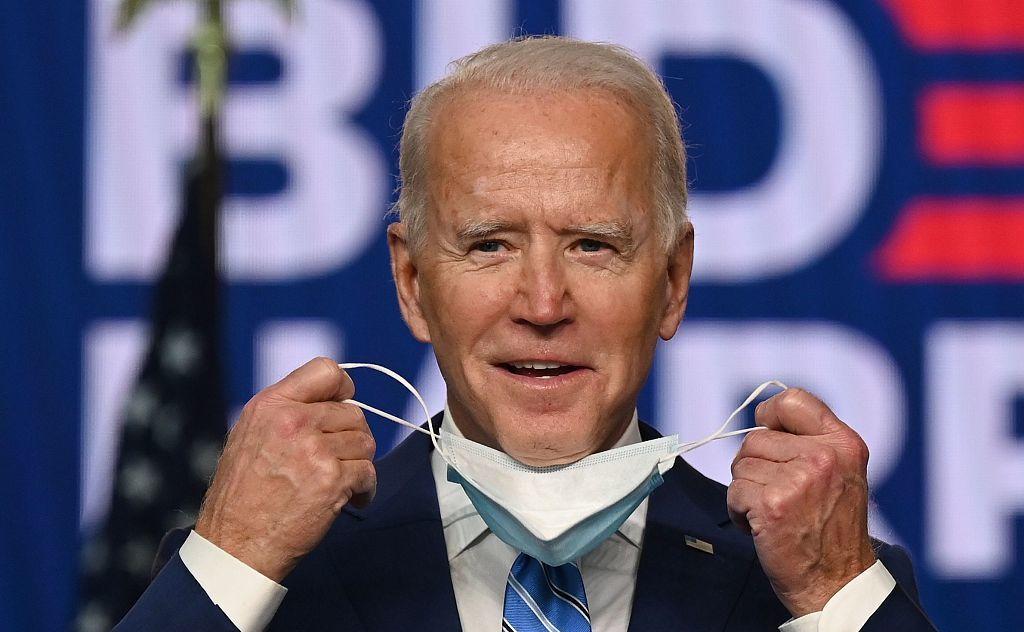Source: Global Times
Hong Kong's "Asia Times" online January 15 article, original title: U.S.-China competition and "security dilemma" subtitle: Trying to strengthen national security may lead to counterproductive results Increased tensions between the United States and China are not surprising. But if the U.S. goal is to protect national security and maintain peace in East Asia, it is not reasonable to build a military alliance and expand its military power in East Asia. The strengthening of U.S. military power could lead to an arms race with China. This will not only cost the United States dearly, but also risk a deadly escalation.

Biden Infographic. Image source Visual China
In order to prevent an arms race against China, US policymakers should not forget the impact of the "security dilemma." The late political scientist Robert Jervis offered a classic understanding of the term: many of the means by which one country tries to increase security reduces the security of other countries. In other words, if you have a gun, others can't judge how you'll use it. China sees the U.S.-Britain-Australia security alliance as a threat to its own security. From the perspective of the "security dilemma", this is not without reason.
Two examples in the modern history of the United States — the Korean War and the Cuban Missile Crisis — illustrate the consequences of ignoring the effects of the security dilemma. Two lessons can be drawn. First, a large number of weapons and a strong military do not necessarily mean that the country is more secure. Second, U.S. foreign policymakers need to recognize national interests in a narrow sense. That would allow the United States to avoid unnecessary provocative actions by nuclear powers like China. Given the lessons of the Korean War and the Cuban Missile Crisis, it is important for U.S. policymakers to understand China's views on strengthening U.S. military alliances in East Asia. (By Benjamin Gilter)
The article of the US "National Interest" magazine on January 15, the original title: Everything looks at competition with China from a security perspective, which is unfavorable to the United States And the United States and China are increasingly inclined to look at competition from a security perspective. Instead of strengthening economic partnerships in the Asia-Pacific region, U.S. foreign policy agencies are keen to promote alliances, relying on security partnerships such as AUKUS. But exaggerating security concerns in competition with Beijing has negative consequences. Not only could Washington waste political capital, but it could also misjudge the extent to which economic decisions are "secured."
The United States ignores regional multilateral economic agreements. China's push for regional economic integration will bring the Asia-Pacific region closer to China's orbit and allow the region's largest economy to exert greater influence.
The economic sector is where the competition between the United States and China is most intense. The overemphasis on security has spawned an American strategy that is increasingly incompatible with the economic base of U.S.-China competition. A well-thought-out grand strategy should seriously consider geo-economic realities and coexist with legitimate security concerns against China. New Zealand, for example, tightened telecommunications regulations to address 5G cybersecurity issues. But at the same time, Wellington successfully upgraded its free trade agreement with Beijing. Other U.S. partners are trying to strike a similar balance between security and economic needs.
"Securing" Sino-US relations can easily lead to escalating competition and dangerous zero-sum games. The prevalence of fear-based politics only makes the two countries see each other as an existential threat, thereby increasing the likelihood of conflict, while ignoring the real driver of competition – the economy. It is this driving force that guides the rest of Asia to engage and compete with China. (Translated by Puyen Kimiyaj, Qiao Heng)